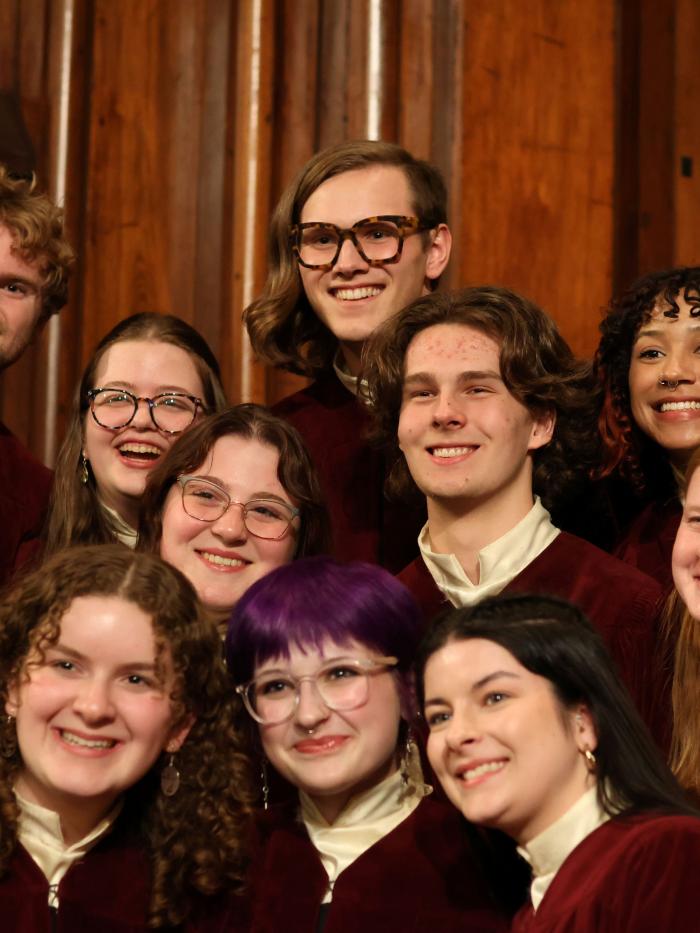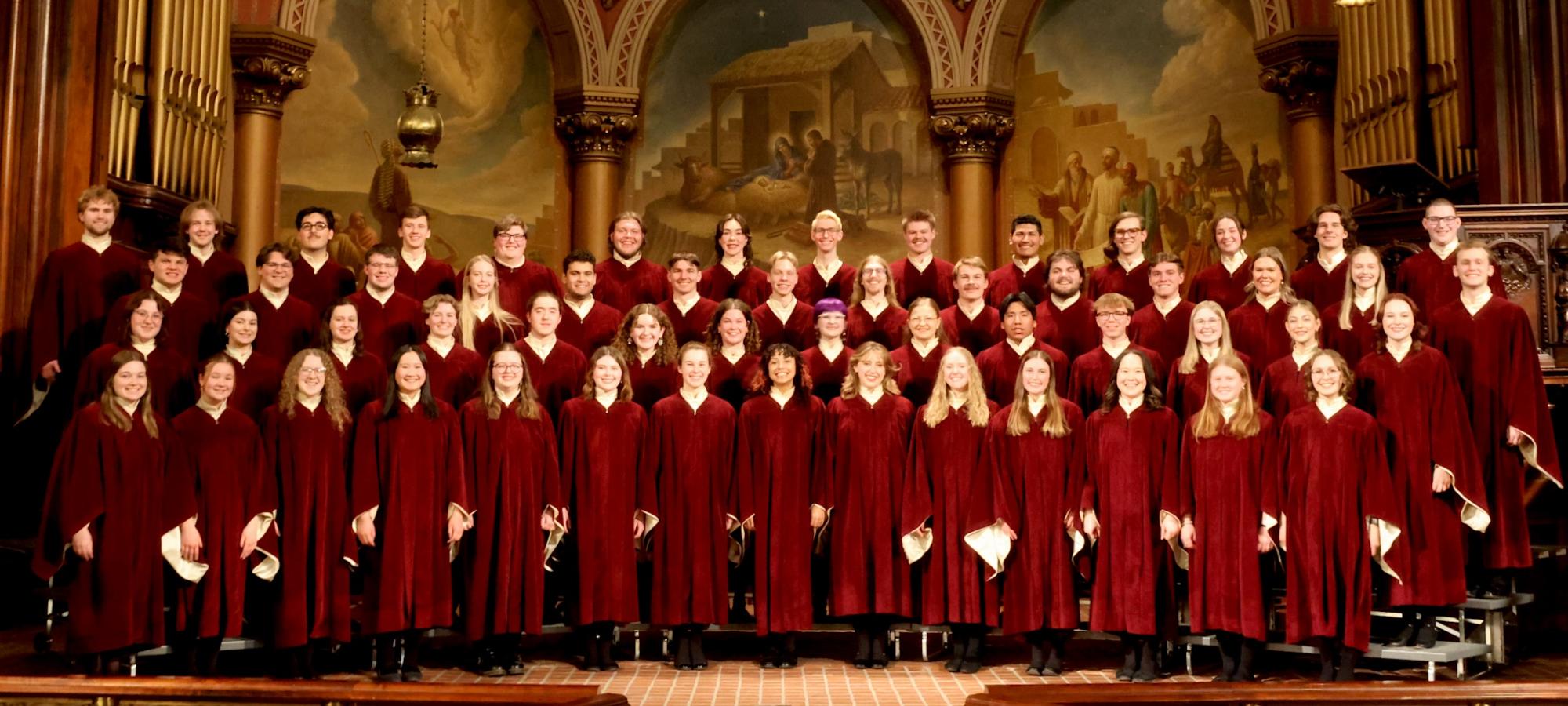The Gustavus Choir
Established in 1932, the nationally renowned Gustavus Choir is the flagship choir in an active and highly integrated choral program that is comprised of nearly 300 students. Members of the choir are selected by audition and represent a broad spectrum of academic and life interests.
Rooted in its Lutheran choral heritage, the Gustavus Choir performs fine sacred music from all historical periods, but also champions new music by contemporary composers. The choir has premiered commissioned works of noted composers including Eric Whitacre, Stephen Paulus, Imant Raminsh, and Jaakko Mäntyjärvi. In 2020, the choir commissioned a new "Alleluia" setting from acclaimed composer Elaine Hagenberg. In 2021, the choir commissioned a powerful new work entitled "Kouraj" from Haitian-American composer Sydney Guillaume.

The Gustavus Choir maintains an extensive annual touring schedule throughout the United States and travels abroad every four years. Over the past 40 years, the choir has appeared at cathedrals, conservatories, and cultural centers in Scandinavia, Russia, Asia, South Africa, and dozens of European countries. Recent international tour venues have included St. Paul’s Cathedral in London, Notre Dame in Paris, Stephansdom in Vienna, Nikolaikirche in Leipzig, Scholosskirche (Castle Church) in Wittenberg, and Hedvig Eleonora in Stockholm. The Gustavus Choir is frequently invited to perform at professional conferences and performed for the King and Queen of Sweden in 2012.
For more than four decades, the Gustavus Choir has joined forces with four other music ensembles on campus to celebrate Christmas in Christ Chapel, a nationally televised worship service of music, dance, and spoken word. More than 4,000 people visit campus each year for the performances and over 10,000 view the annual live-stream.
